School-going children’s nutrition: Nutrition tips for school-going children (6-12 yrs.)

Childhood is the construction phase of a person as he/she starts not only undergoes physical and mental development but also develop their social conscience gradually.
At this phase, they started to meet new friends, new people, and also develop their interest in watching television, playing video games, and many more. All these affect not only their behavior and but also their food habits. During this age, most of the children’s taste-buds love to check the taste of candies, chips, chocolates, fast foods, junk foods, and many more. Therefore, it’s a big challenge for most of the parents to provide food that is equally tasty and nutritious.
|
Headlines of this article, at a glance 1. Essential nutrients for school-going children 2. Healthy food items for school-going children 3. Most common health issues during the school-going age 5. Bottom line 6. References |
Let us discuss the essential nutrients which are important during the school-going age:
Calorie:
- Calorie consumption is depending on children’s age, sex, and physical activities.
- During this age boy’s requirements are high than a girl.
- Sufficient calorie is very important to maintain their body weight and also maintain their energy level.
Protein:
- In school-going age, a sufficient amount of protein is essential for the growth and development of muscles.
- It is also needed to build and maintain tissues, hormones, and enzymes.
- Protein also supports to maintain the energy level.
- The deficiency of protein is one of the main causes of malnutrition and can also affect a child’s growth and development.
Protein-rich foods:

Animal-based foods: Meat, fish, egg.
Plant-based foods: Pulses, legumes,
nuts, oil-seeds, etc.
Milk and dairy products like paneer,
yogurt, cheese, etc.
Carbohydrate:
- Carbohydrate is the main fuel of energy in the body. So, the carb is very important to maintain the energy level.
- The brain needs the energy to work properly and carbohydrate helps to get supply this.
- Children with a lack of carb feel tired, lethargy, suffer from constipation, headache, etc.
Carbohydrate-rich foods:
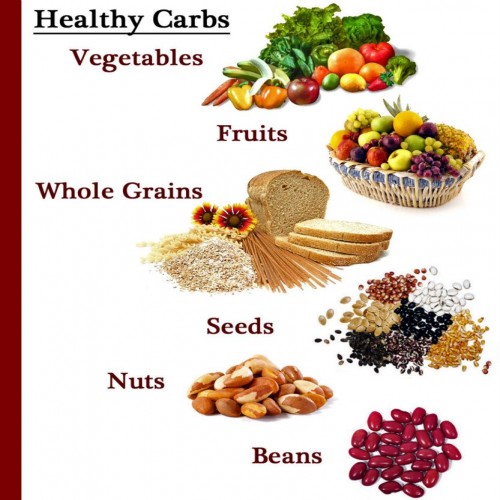
Rice, bread, wheat products, breakfast cereal products, pulses, vegetables, fruits, dairy products, etc. are good source of carbohydrate.
Fat:
- During school-going age, healthy fat is important for their brain function and also their healthy growth.
- Fat is also playing a role to supply energy.
- Fat is important to absorb fat-soluble vitamins like A, D, E, K in the body.
Fat-rich foods:

Cooking oil, nuts, seeds, ghee or clarified butter, whole egg, dairy products, avocado, peanut butter, meat, fatty fish, etc.
Vitamin:
Vitamin-A:
- Vit-A is important for their growth and development.
- It plays an important role in vision.
- Vit-A act as a strong antioxidant that helps to boost the immune system.
Food source:
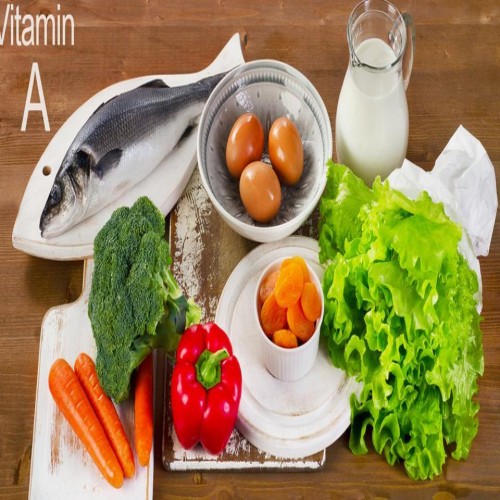
Animal-based foods: Cod-liver oil, liver of lamb, beef, egg, crab muscle, milk, etc.
Vegetables, fruits, and others: Carrot, spinach, radish leaves, coriander leaves, mint, curry leaves, drumstick leaves, mace, pepper dry (black), apricot fresh, mango, orange, persimmon, butter, ghee, etc.
Vitamin-D:
- It helps in teeth and bone growth and development.
- Vit-D also helps calcium absorption in the body.
Food source:

Vitamin D is usually not present in foods naturally. Few food items are there which contain vitamin D naturally.
Natural sources: Mushrooms, fish liver oil, egg yolk, etc. contain vitamin D.
Fortified foods: Processed foods like some dairy products, soya milk, cheese, some fruit juices, and some cereal products contain vitamin-D by fortification.
Vitamin-E:
- Vitamin-E also acts as an antioxidant, which helps to improve the immune system.
- It helps to prevent cell damage is caused by free radicles.
Food source:
Almond, peanuts, brazil nuts, spinach, avocado, beet green, etc.
Vitamin-C:
- This vitamin is important to maintain skin health, tissue repair and wound healing, etc.
- Vit-C also acts as a strong antioxidant which involves boosting the immune system.
Food source:
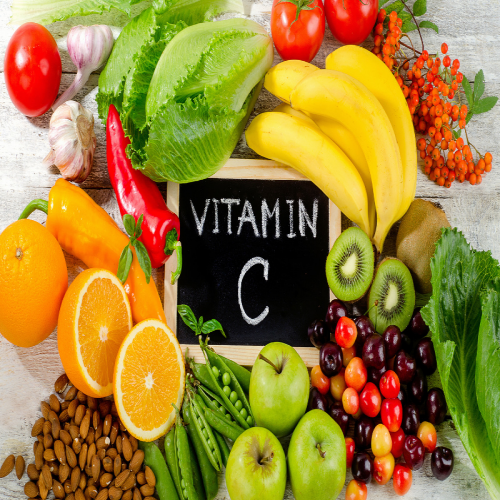
Cabbage, beet green, coriander leaves, drumstick leaves, bitter gourd, capsicum, green chili, guava, lime, lemon, orange, ripe papaya, strawberry, etc.
B-Vitamins:
- B-vitamin is helping to improve the nervous system.
- It helps the production of Red Blood Cells and also good for metabolism.
Food source:
Meat, poultry, egg, milk, fish and whole grain, etc.
Minerals:
Iron:
- Iron helps in the production of blood. Iron deficiency anemia is very common in this age group of children.
- It helps the Red Blood Cells (RBC) to carry oxygen throughout the body.
Food source:
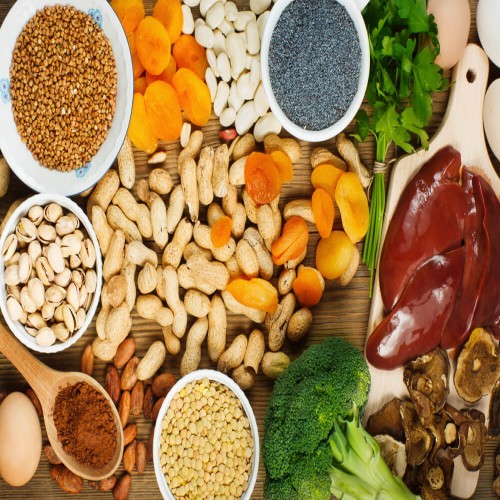
Iron-fortified cereals products, oatmeal, eggs, meat, liver, dark chocolate, beans, pulses, nuts, spinach, cauliflower green, soybeans, parsley leaves, kulekhara leaves, etc.
Calcium:
- Calcium is essential for the growth and maintenance of bone and teeth.
Food source:
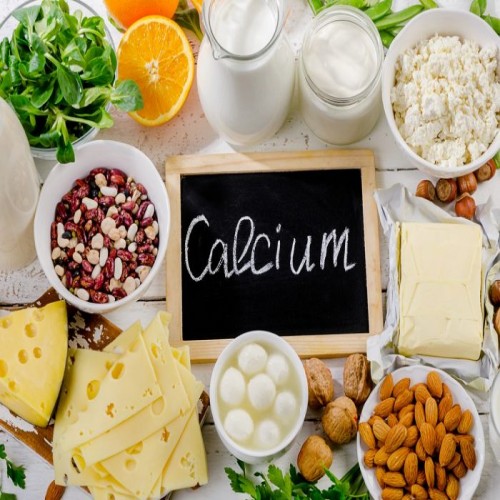
Dairy products, calcium-fortified cereals products, tofu, beans, broccoli, leafy vegetables, etc.
Healthy food items for school-going children:
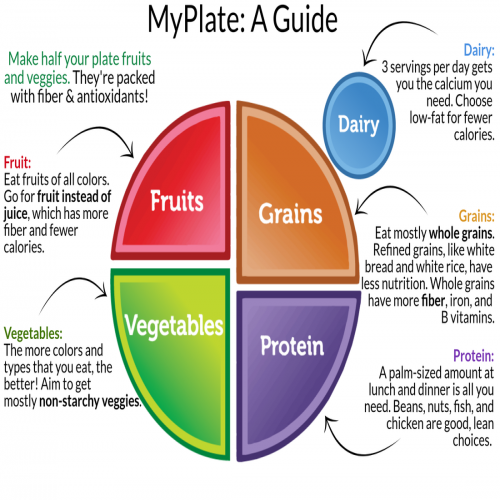
Breakfast & snacks & school-tiffin:
Upma, poha, idli, dosa, bread sandwich (chicken, egg, vegetable, paneer), noodles (vegetable, egg, chicken), pasta with vegetables, parathas, Palak parathas, multi-grain parathas, bread toast with cheese, fruit salads, chicken salads, fruit custard, fruit shake, sprouted moong dal, chickpeas, ghugni, lassi, etc.
Lunch & dinner:
Plain rice, jeera rice, fried rice with vegetables or egg or chicken, khichri, whole wheat roti or parathas, multi-grains parathas, dal, ghugni, mixed vegetables, paneer, fish, meat, kabab, yogurt, raita, etc.
Most common health issues during the school-going age:
Obesity:

Childhood obesity is nowadays the most challenging issues globally. Most of the children are happy to play with computer and video games, etc, nowadays. Along with this, they also love to eat chips, chocolate, pizza, burger, and many more. All these are affecting their health. Therefore, all the parents need to educate them about healthy foods, proper nutrition, and a healthy lifestyle.
According to WHO, 340 million children and adolescents aged 5-19 yrs. were overweight or obese in 2016. An overweight or obese child has a chance to continue the same health status into adulthood. The overweight or obesity in adulthood may have chance heart disease, high bold pressure, diabetes type-II, arthritis, etc.
Dental caries:
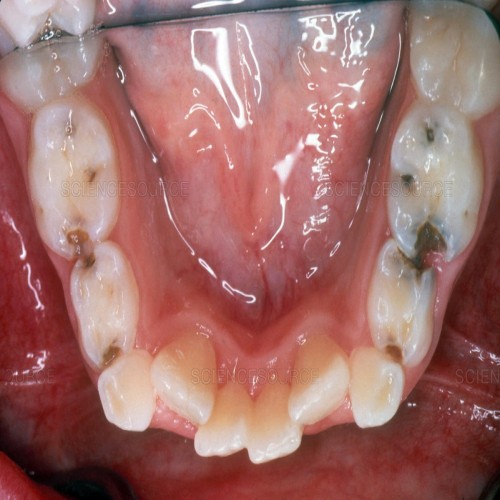
Dental caries in the most common problem during the school-going age. The main cause of dental caries is sugar or starch consumption which are mainly present in chocolate, candies, cakes, biscuits, soft drinks, etc. The bacteria which are present in the mouth, produce acid when coming in contact with sugar or starch. This affects the teeth enamel and creates a small hole.
During school-going age, oral health is directly linked with food habits and nutrition. Poor food habits or lack of oral hygiene cause dental caries and untreated dental caries may cause pain, infections, even teeth loss.
Cold, cough, or influenza:

During this age group, it is a very common health issue for most of the children, especially during season change. The viruses quickly spread from one to another by coughing, sneezing, talking, etc. The children who have weak immunity power are mostly affected compared to others.
So, every child should improve their immunity power. The immunity power improves by proper nutrition, personal hygiene, and a healthy lifestyle.
Constipation:
Constipation is a very common health issue during this age. Poor dietary habits, lack of physical activities, lack of water intake, holding the stool for a longer time or physical weakness, etc., may be the cause of constipation.
Fiber-rich foods like vegetables, fruits, whole grains, sufficient amount of fluid consumption help to improve the situation.
Diarrhea:
At school-going age, diarrhea is also a very common health issue. Children have a chance to infected by water, any contaminated food items, etc. It is caused due to virus infection like rotavirus, norovirus, or due to some bacterial infection like salmonella or even parasites, etc.
Watery stool, nausea, vomiting, abdominal cramp, fever is the most common cause of diarrhea. Due to the loss of fluid, the body becomes more dehydrated, so the body needs sufficient fluid. Oral Rehydration Solution (ORS) is the best solution to meet the fluid demand along with minerals. If the situation does not improve, consult with the doctor.
Advice for the parents:
- Avoid force-feeding.
- Listen to your child’s food preferences and tastes.
- Guide properly about personal hygiene.
- Give some variation in their diet, it helps to improve their food habit.
- Don’t open the television or computers when they eat. It develops bad eating habits.
- As a parent, take at least one meal with your child. It helps them improve their food habits.
- Focus on their physical activities, it also very important for your child’s growth and development. Take them to parks. Involve them in outdoor activities like swimming, cricket, football, or any other activities.
Bottom line:
The school-going age is the best age for almost everybody. New friends, new people, new activities are making our life so interesting. This is the age, when we all are ready to accept new things, new habits, or new cultures. Proper guidance about food, nutrition, and hygiene can help a child to become a healthy person in the future.
- https://www.stanfordchildrens.org/en/topic/default?id=school-aged-child-nutrition--90-P02280
- https://healthengine.com.au/info/nutrition-for-school-children
- https://www.webmd.com/children/guide/diarrhea-treatment#2
- https://www.webmd.com/health-insurance/features/family-vitamins#2
- https://www.mayoclinic.org/healthy-lifestyle/childrens-health/in-depth/nutrition-for-kids/art-20049335
- https://healthyeating.sfgate.com/nutrition-requirements-school-age-children-3781.html
- https://www.who.int/dietphysicalactivity/childhood/en/
- Dietetics, B. Srilakshmi
- Manual of Clinical Nutrition Management



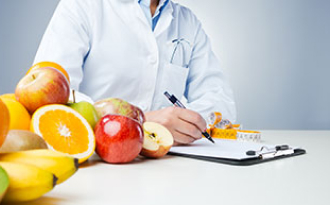






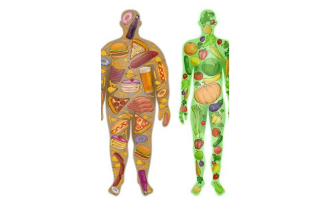

0 Comments